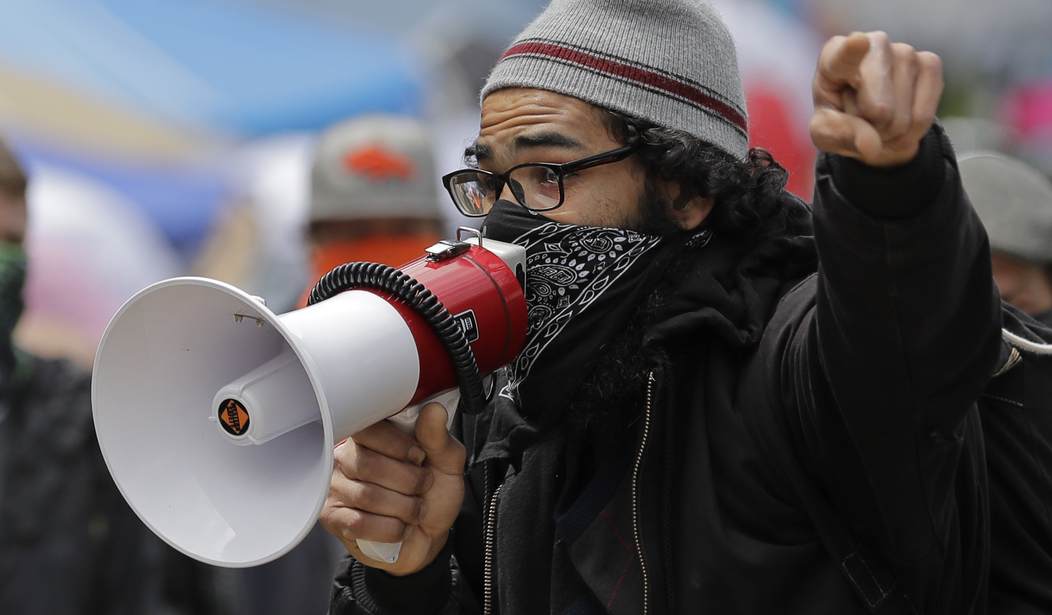If you enjoy comfort, believe in individualism, or seek objectivity, you’re harboring internalized racial superiority and are complicit in systemic racism.
That’s the message the City of Seattle gave their staff during a 2-1/2 hour training session called “Interrupting Internalized Racial Superiority and Whiteness” in June. The real kicker? The training was only for white employees.
According to information attained through a public records request by Christopher Rufo, director of the Discovery Institute's Center on Wealth and Poverty, the seminar was “specifically targeted for White employees” to help them “show up more fully as allies and accomplices for racial justice.”
“We'll examine our complicity in the system of white supremacy—how we internalize and reinforce it—and begin to cultivate practices that enable us to interrupt racism in ways that are accountable to Black, Indigenous, People of Color (BIPOC) folks within our community, including our friends and colleagues at the City," an email announcing the session states.
As @DrKarlynB first reported, the invitation for this training was strictly segregated to "white City employees."
— Christopher F. Rufo (@realchrisrufo) July 6, 2020
The goal is to teach them how they have "complicity in the system of white supremacy" and must be held "accountable to Black, Indigenous, and People of Color." pic.twitter.com/kPbppFYDtM
The seminar began with a list of telltale signs of “internalized racial oppression.” In addition to comfort, individualism, and objectivity, other indicators of internalized racial superiority include perfectionism, control, and silence. On the flip side, signs that a person has “internalized racial inferiority” might be self-hate, rage, addiction, hopelessness.
First, diversity trainers informed white participants that "objectivity," "individualism," "intellectualization," and "comfort" are all vestiges of internalized racial oppression. pic.twitter.com/qrZwHZgx1H
— Christopher F. Rufo (@realchrisrufo) July 6, 2020
Recommended
To address this mindset, the training challenged white participants to reform their racist thinking with a series of thought exercises titled “The Work of White Accomplices.” Strategies include practicing “self-talk” that affirms one’s complicity in racism, identifying racist behaviors by recognizing when one’s “trauma responses” are activated and replacing them with behavior that liberates people of all colors, and "[c]ultivating networks of other white people who are practicing antiracist accomplicehood, so you can talk through your struggles in the work of undoing your own whiteness and showing up as allies and accomplices.”
What's next?
— Christopher F. Rufo (@realchrisrufo) July 6, 2020
The City of Seattle diversity trainers encourage white employees to "practice self-talk that affirms [their] complicity in racism" and work on "undoing your own whiteness." pic.twitter.com/CJxNEcIeh2
But it doesn’t stop there. After explaining how to expel racist thinking, the presentation outlined the “things we have to give up in order to be accomplices.” The list includes, but is not limited to, physical safety, property, jobs and promotions, relationships with “some other white people,” social status, and individuality.
What happens after the thought exercises? It's time to DO THE WORK.
— Christopher F. Rufo (@realchrisrufo) July 6, 2020
The trainers ask white employees to "let go" of "comfort," "guaranteed physical safety," "control over the land," "social status," and "relationships with some other white people." pic.twitter.com/sRZf8gA6Go
The training acknowledges that as a person strives to become an accomplice, they might anger other white people as their own shame and suppressed emotions come up or find themselves targeted or marginalized--but this is an encouraging sign that they are becoming an ally.
Such notions might sound radical, but they’re already playing out in real life. At American University, all executive board members of the school’s College Democrats club resigned from their positions after receiving pushback about a lack of diversity in leadership. In a statement, former president Rhett Martino said he was stepping down because “BIPOC [Black, Indigenous, and people of color] voices must be amplified in leadership, and that must start from the top.”
Similarly, John T. Edge, co-founder and director of the Southern Foodways Alliance, is being pressured by his staff to step down from his position because he has “too much power over who tells the story of food in a region where so much of the cuisine was created by enslaved people.” There are no accusations that Edge, himself a progressive, has demonstrated racism; it is simply his status as a white man in leadership that is oppressive.
“I view him as a dear friend and a close ally, but principles don’t mean anything until they cost you something,” author Lolis Eric Elie told the New York Times. “And John T. is a man of great principle who may end up paying a great price in this context.”
And then there was a recent op-ed in the New York Times suggesting that white people show their “anti-racism” by cutting off relatives and loved ones until they took “significant action in supporting black lives either through protest or financial contribution.”
So far, the City of Seattle has not provided the names of the diversity trainers, the budget for the program, or the video of the session. But as the documents show, the thought police are coming, even as the regular police are abolished.

























Join the conversation as a VIP Member